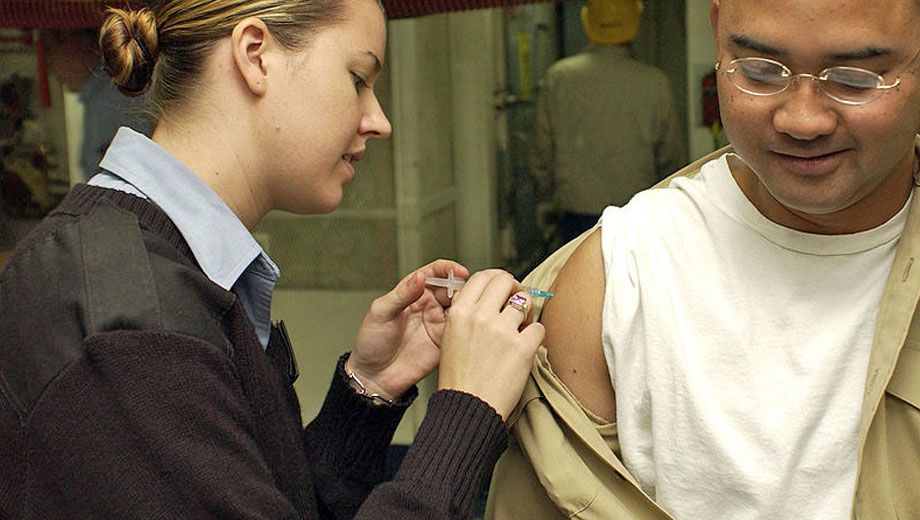US flu outbreak: get vaccinated at home, take precautions abroad

If you're heading to the US on business, watch out: there's a massive influenza outbreak in full swing.
The flu has led to a public health emergency being declared in New York and other states, with 24 of the 50 states reporting high levels of the disease.
For Australians, the bottom line is: get vaccinated, take precautions and make sure your travel insurance covers the flu and any antiviral medication you might need.
Get vaccinated
If you got a flu jab last winter in Australia, it'll work to protect you against the current outbreak. Even if you haven't already been vaccinated, it's not too late: contact your GP to get the jab.
"The flu vaccine for the current North America winter is the same as for Australia’s last winter – there are two recommended vaccines," Dr Sunil Shanmuganathan, Chief Medical Officer for Australasia at insurers Travel Guard, explains to Australian Business Traveller.
But get it well before you travel, Dr Shanmuganathan advises: "It takes about two weeks after vaccination for antibodies to develop in the body and provide protection against the flu. A flu vaccine is required every year because flu viruses are constantly changing. The flu vaccine is formulated each year to keep up with these changes."
While flu jabs don't contain live viruses (meaning you can't catch the flu from them) you may well feel a little under the weather for a few days as your body adjusts. An even better reason to head to your GP in advance of that usual mad rush to get everything done before your flight across the Pacific.
Here's what to ask for:
In Australia, "GPs will most likely have the trivalent vaccine on hand", says Dr Shanmuganathan. It covers three strains of flu:
- an A/California/7/2009 (H1N1)-like virus
- an A/Victoria/361/2011 (H3N2)-like virus
- a B/Wisconsin/1/2010-like virus
"Some more specialised clinics may offer the quadrivalent vaccine," Dr Shanmuganathan adds, "which contains an additional influenza B virus (B/Brisbane/60/2008) in addition to the three named above."
The virus most commonly seen in the US outbreak is covered by the H3N2-like virus in the Australian vaccines, say the US Centers for Disease Control and Prevention (CDC), the national authority on influenza in the States.
Your GP may well still have stocks available, and should be happy to vaccinate you, with Dr Shanmuganathan explaining that "Influenza is now considered a routine vaccination for travel abroad."
However, Dr Shanmuganathan says, "If the local GP is out of stock, travellers are advised to go to a clinic that specialises in travel medicine, such as The Travel Doctor, owned by Medibank with locations around the country."
If you're already in the US and want to get the jab, the flu vaccine locator may be helpful. Pharmacies in many states can administer the vaccination for a relatively minimal fee — often around or under $50.
Take sensible precautions when on the road
Basic hygiene routines while travelling will stand you in good stead.
While it's impossible to avoid contact with people who may be ill when flying, regular soap-and-hot-water handwashing, alcohol-based hand rubs and taking the time to disinfect surfaces other people may have touched are all good ideas.
(You don't want to know how disgusting your tray table is. Give it a once-over with a good dollop of alcohol gel and your hot towel or a tissue when you get on the plane. Your entertainment and seat control panels are similarly worth a quick clean.)
Make sure your immune system is up to scratch — boost your intake of fruit and veggies, and consider supplementing your diet with vitamins B, C and zinc, which come travel-ready in fizzy tablets like Berocca or Hairy Lemon.
Check your travel insurance
Getting sick in the USA can be a bankrupting experience. Ensure that your travel insurance policy covers US hospitalisation, doctor's visits and prescriptions, and if you have questions make sure you get answers in writing.
Remember that there are certain groups of people at higher risk from the flu. If that's you, make sure your travel insurance will cover you and that you haven't omitted to mention your risk situation to the insurer.
For more information, check out the US Center for Disease Control's Flu advice for travellers page. Australia's DFAT Smartraveller advice page for the US has not been updated with influenza information.
For more news and information for business travellers and frequent flyers, follow us on Twitter: we're @AusBT.
Hi Guest, join in the discussion on US flu outbreak: get vaccinated at home, take precautions abroad